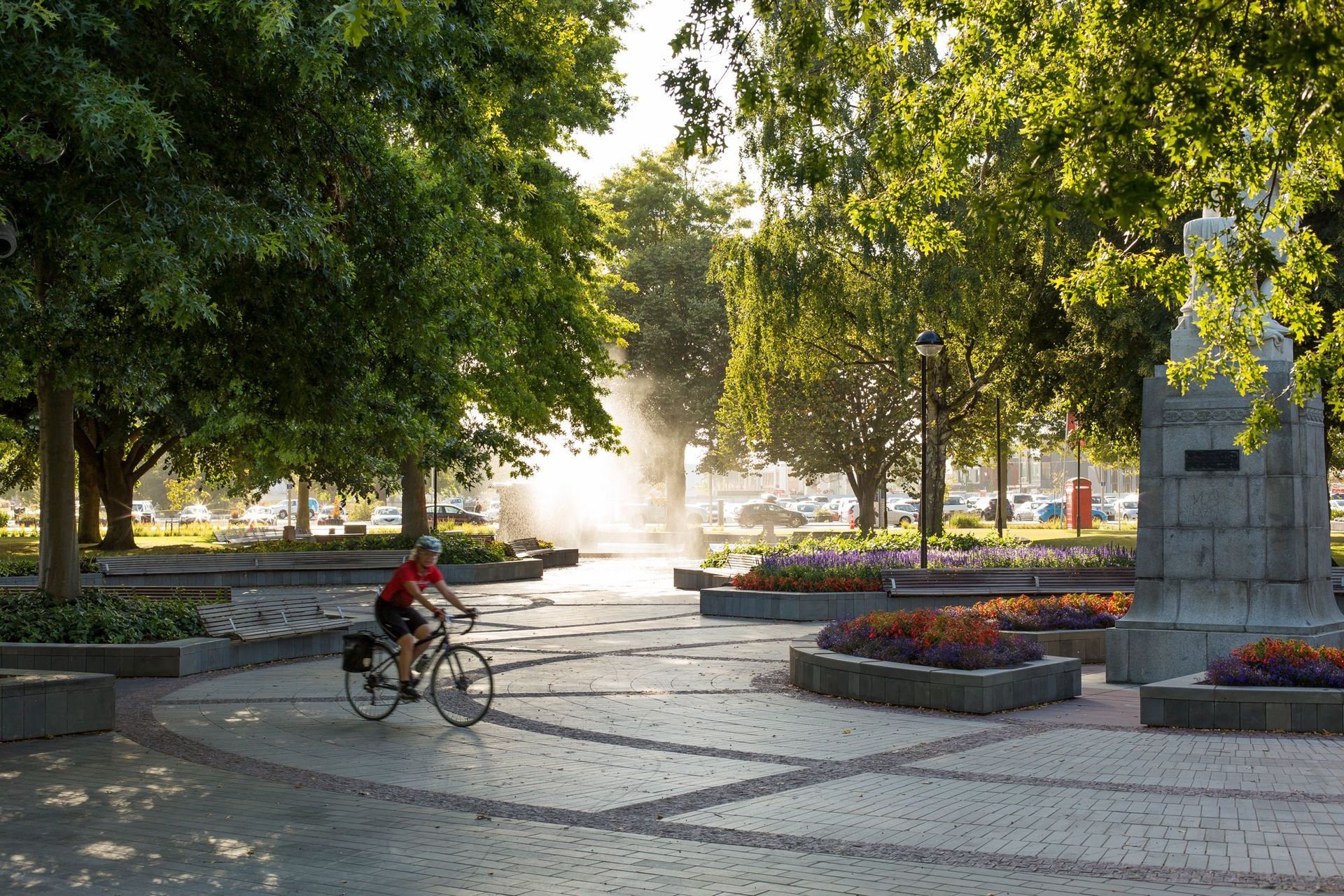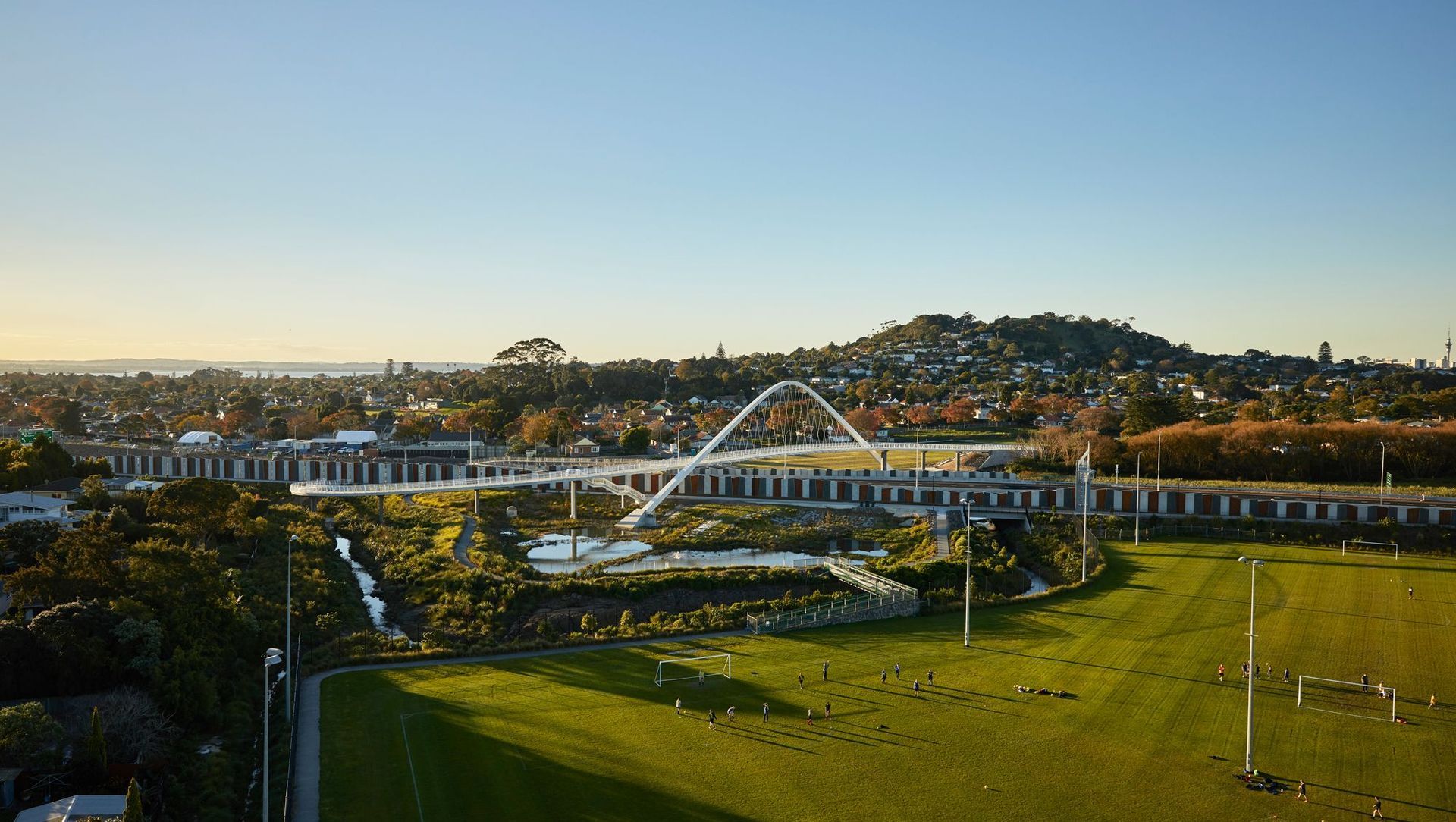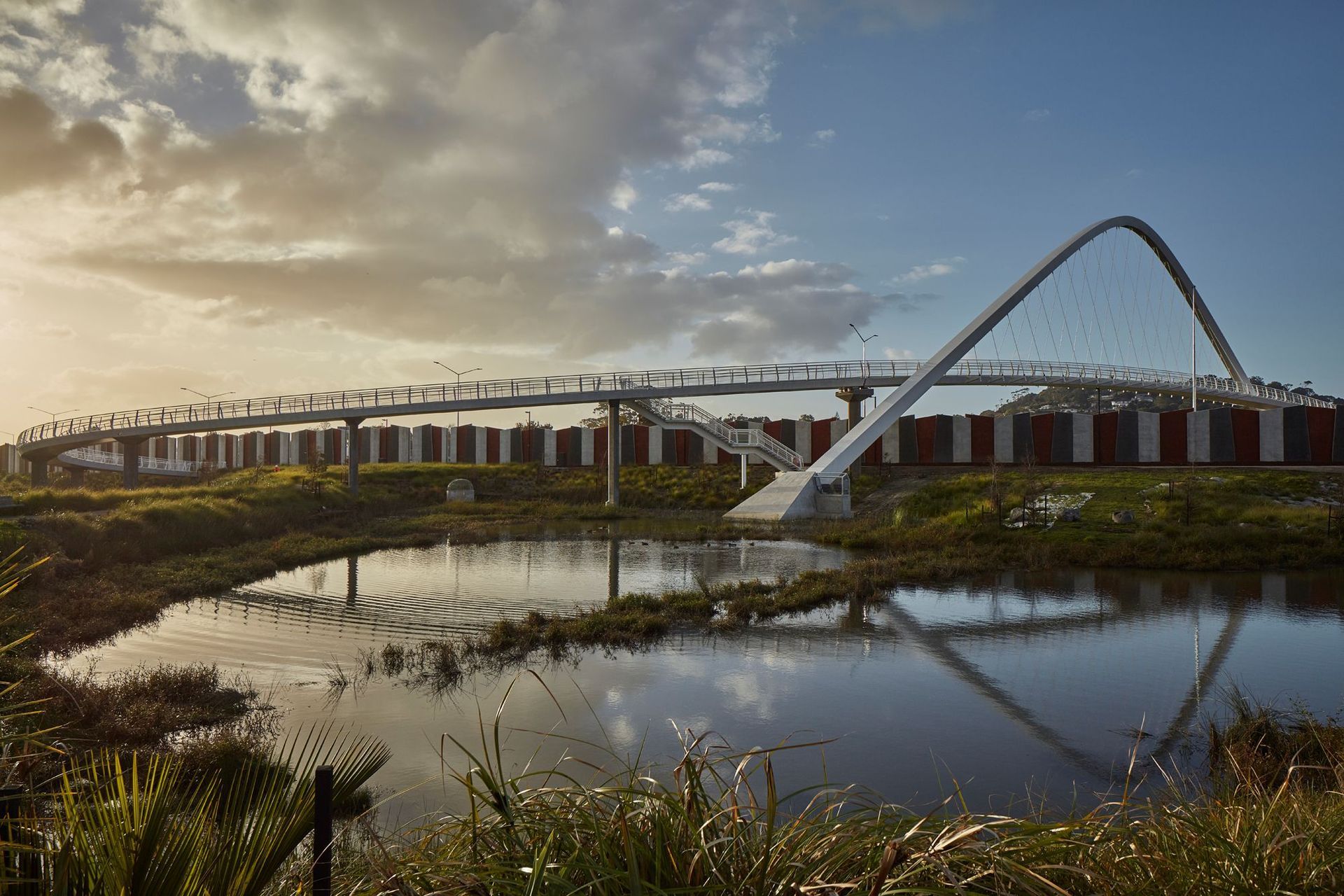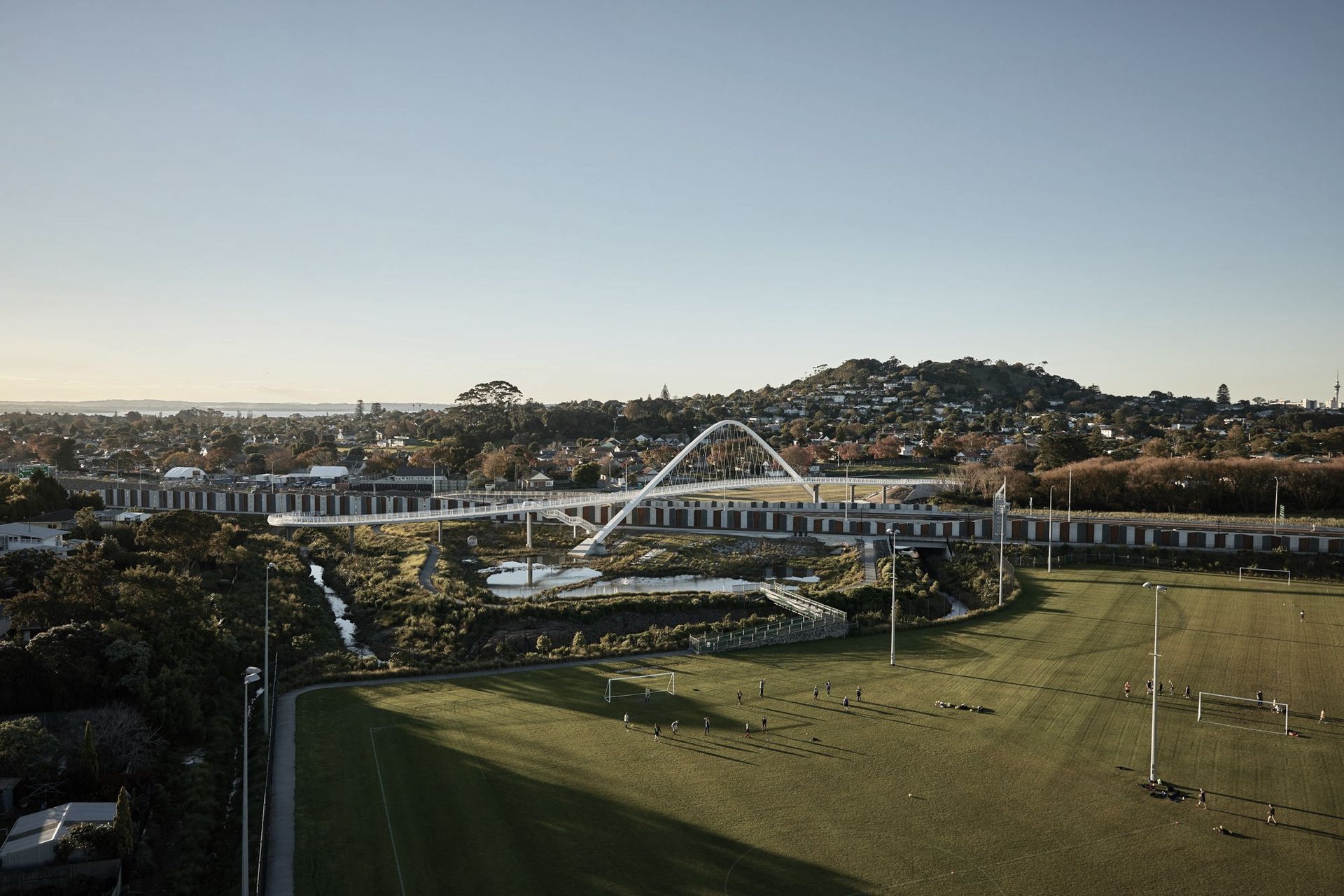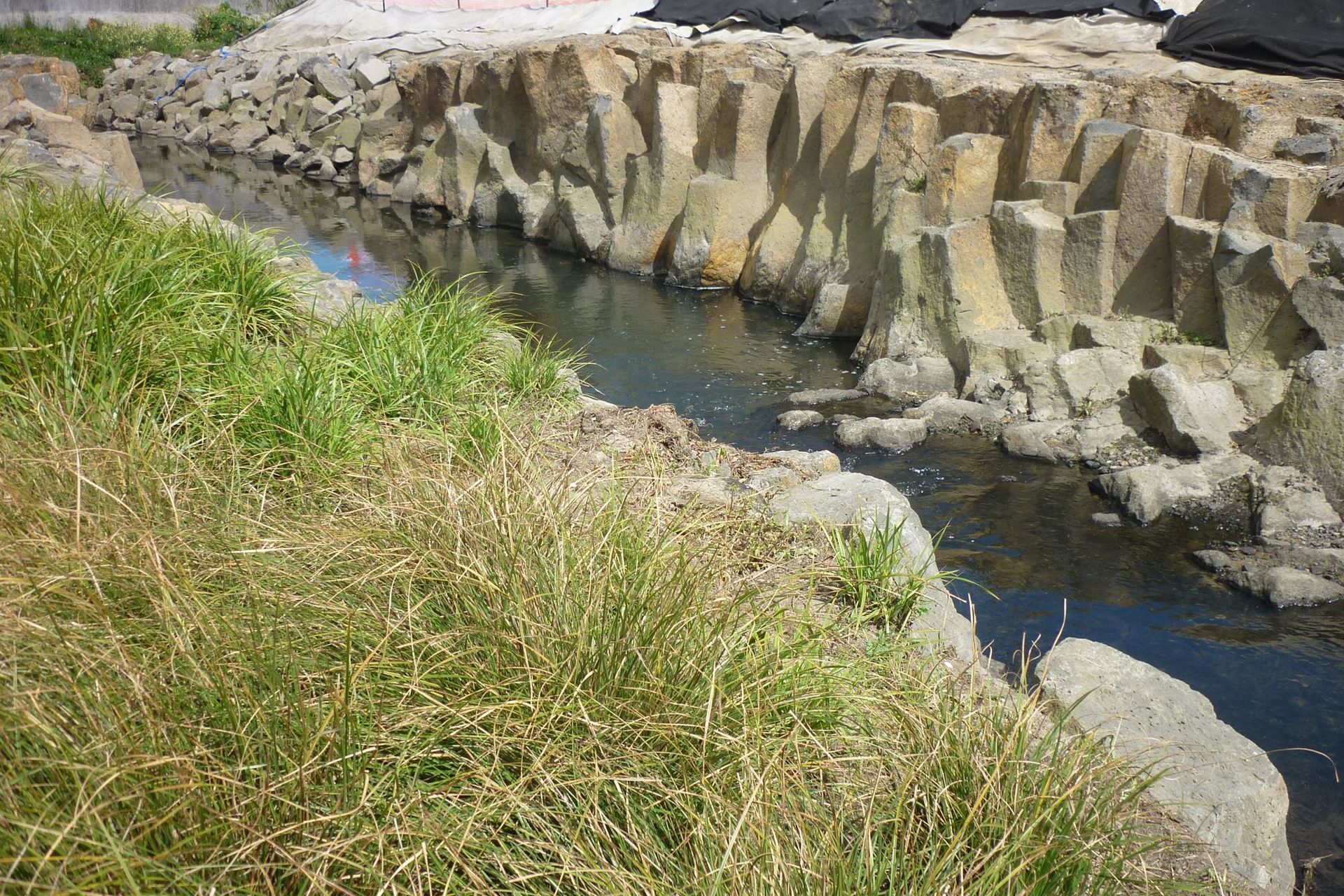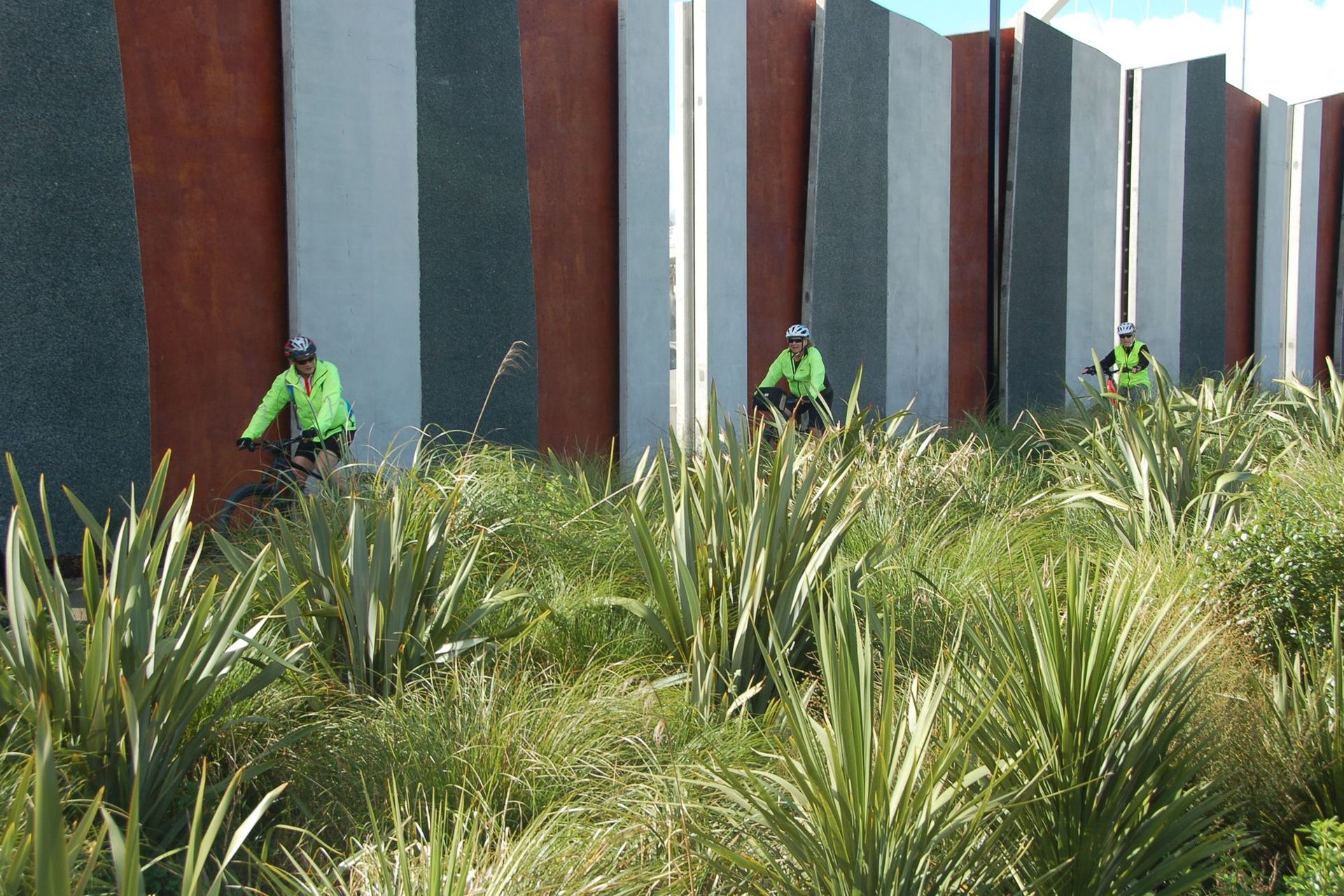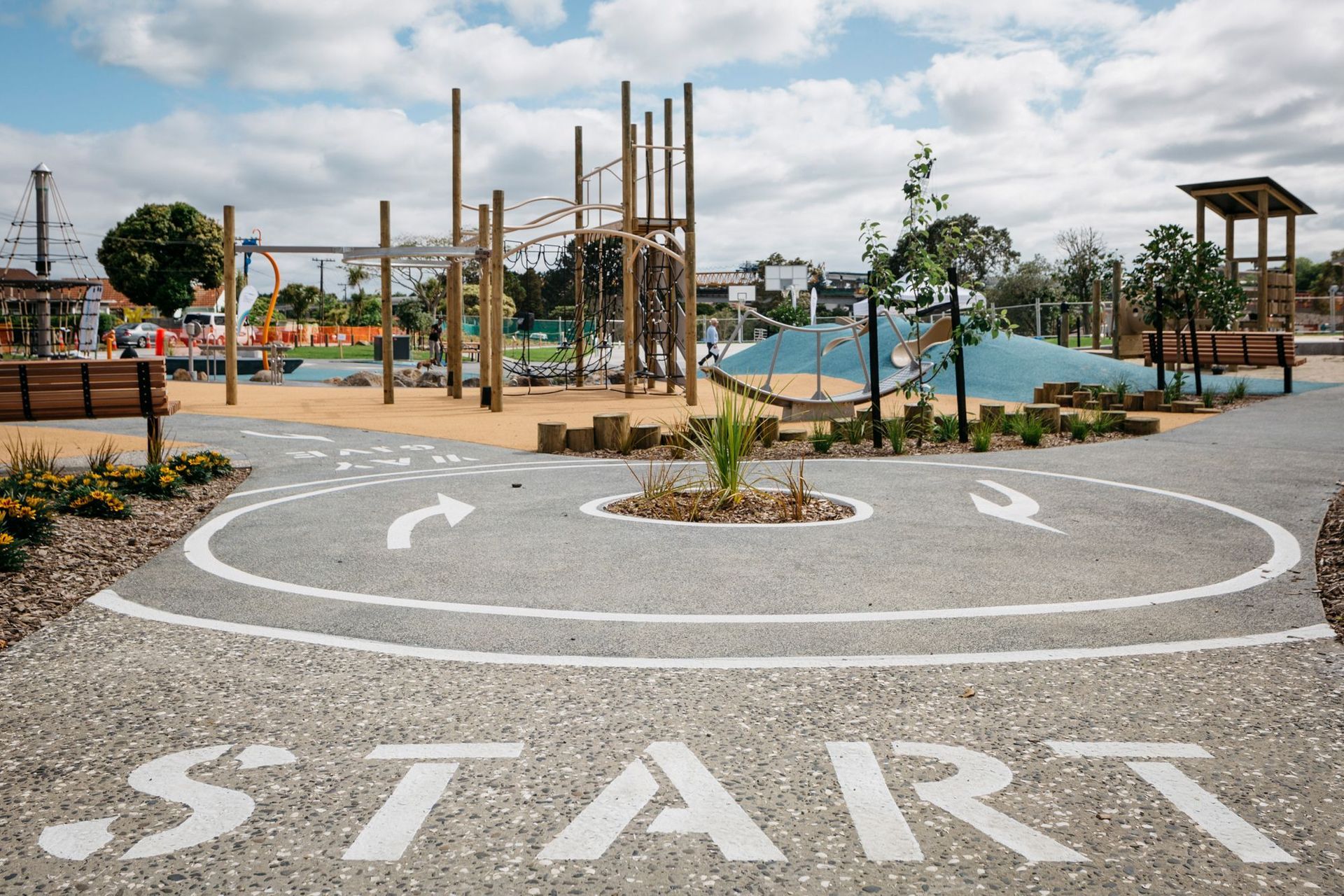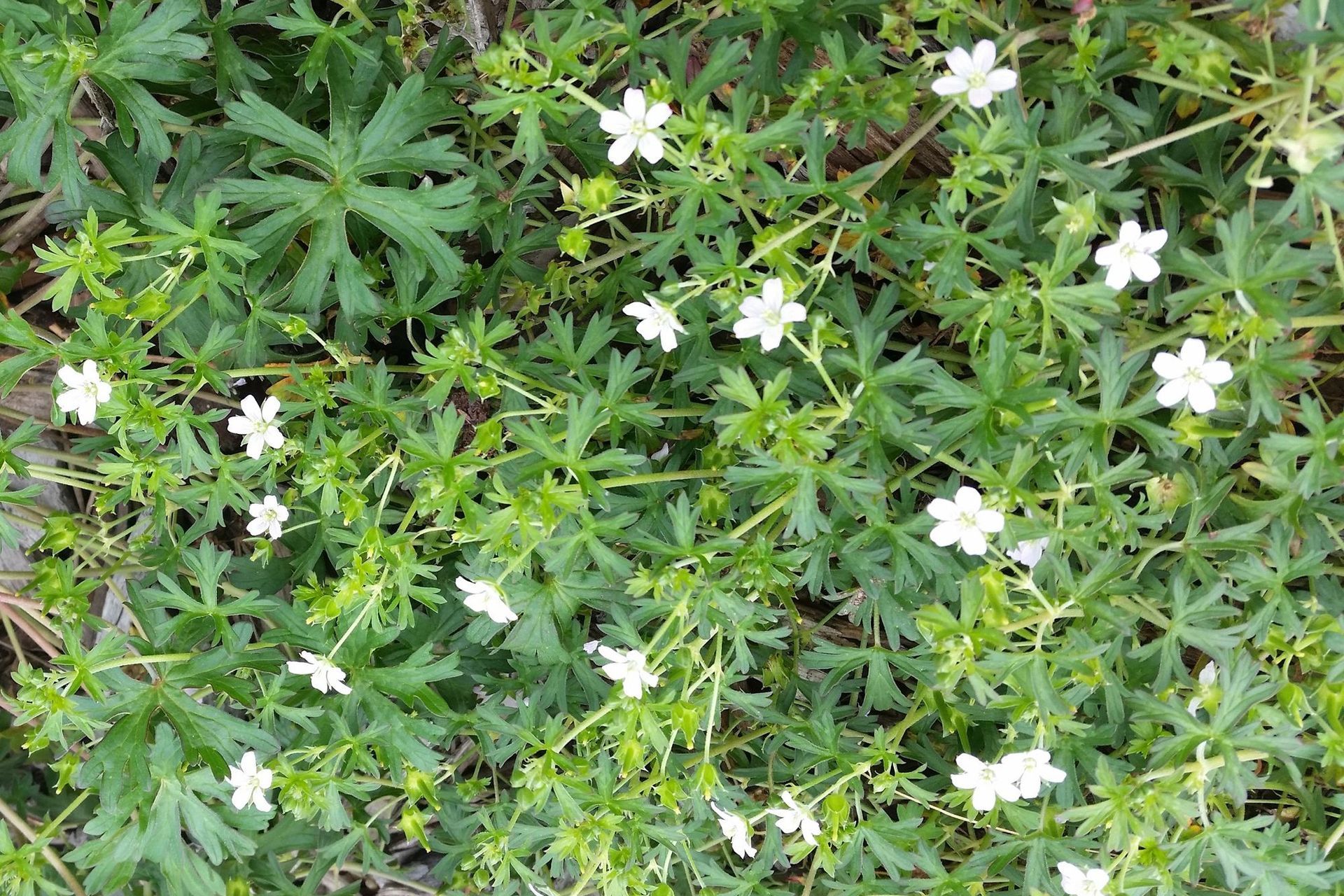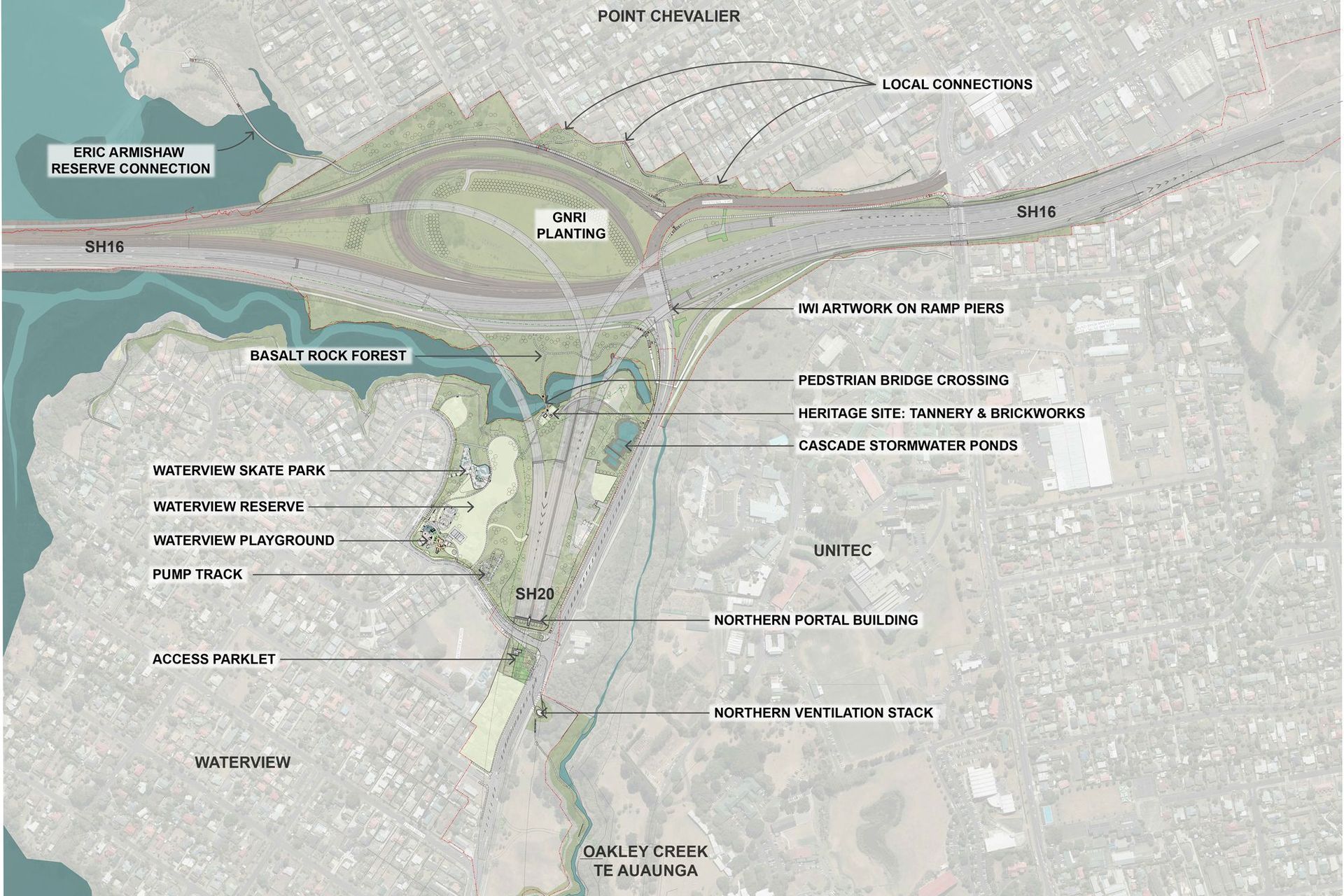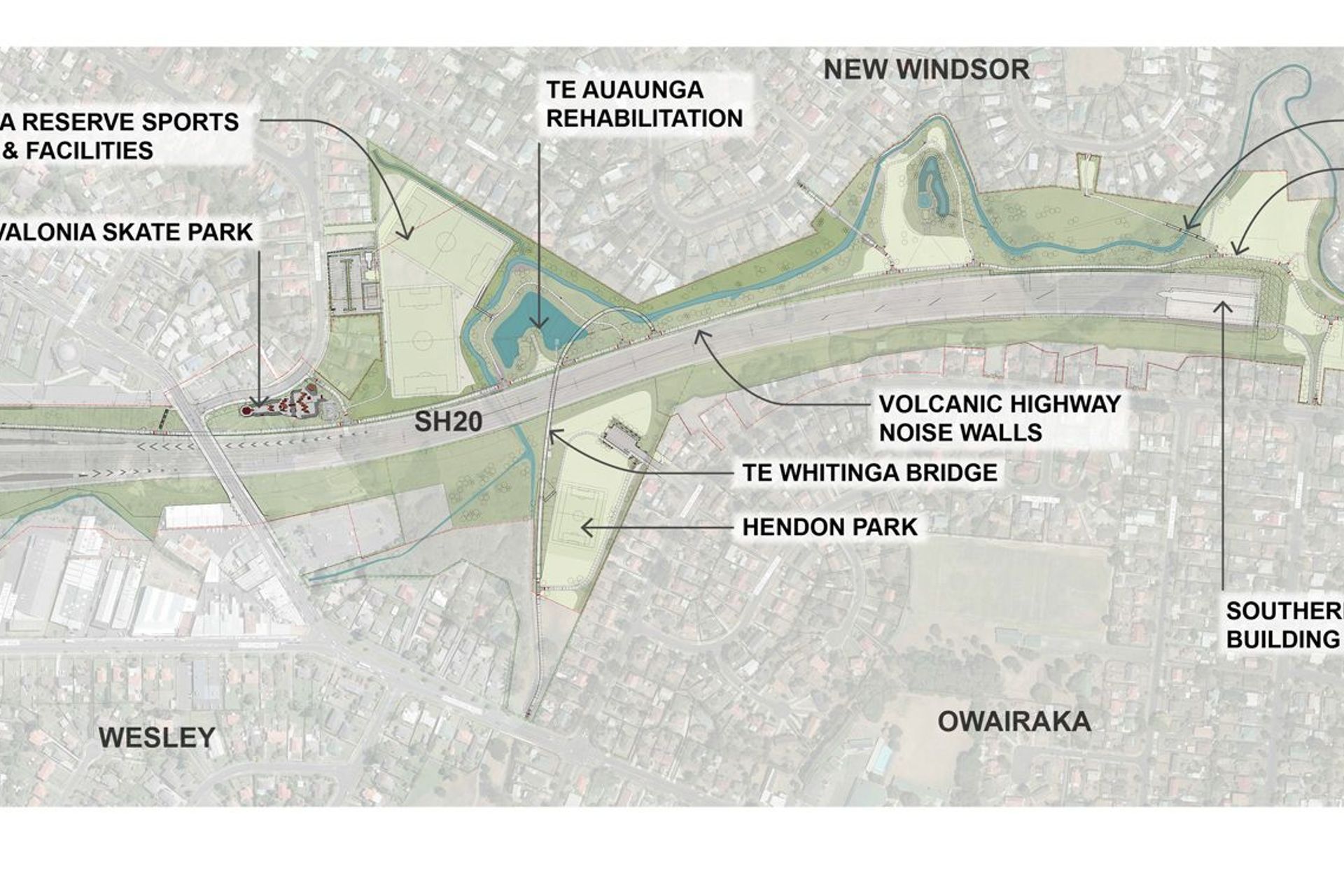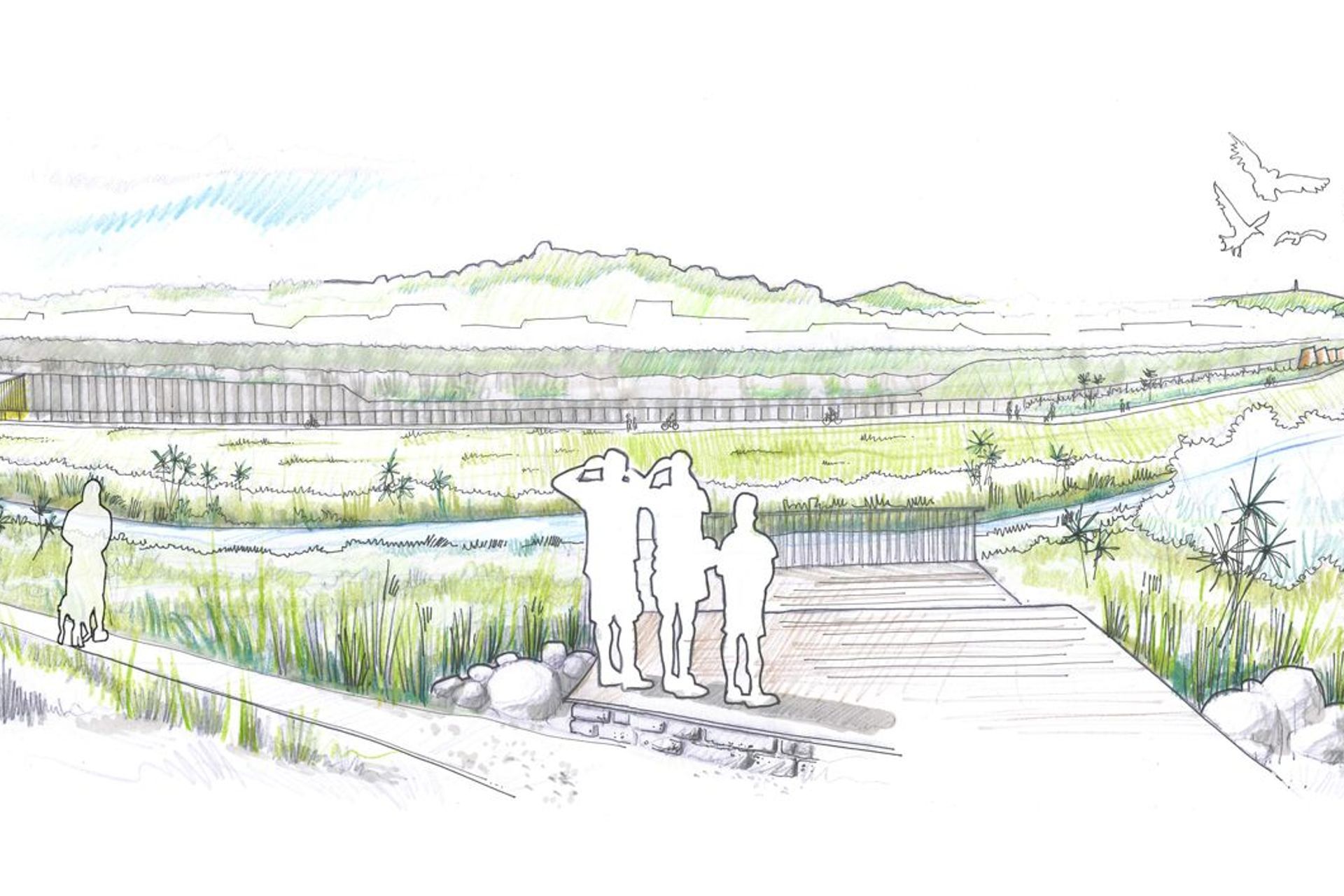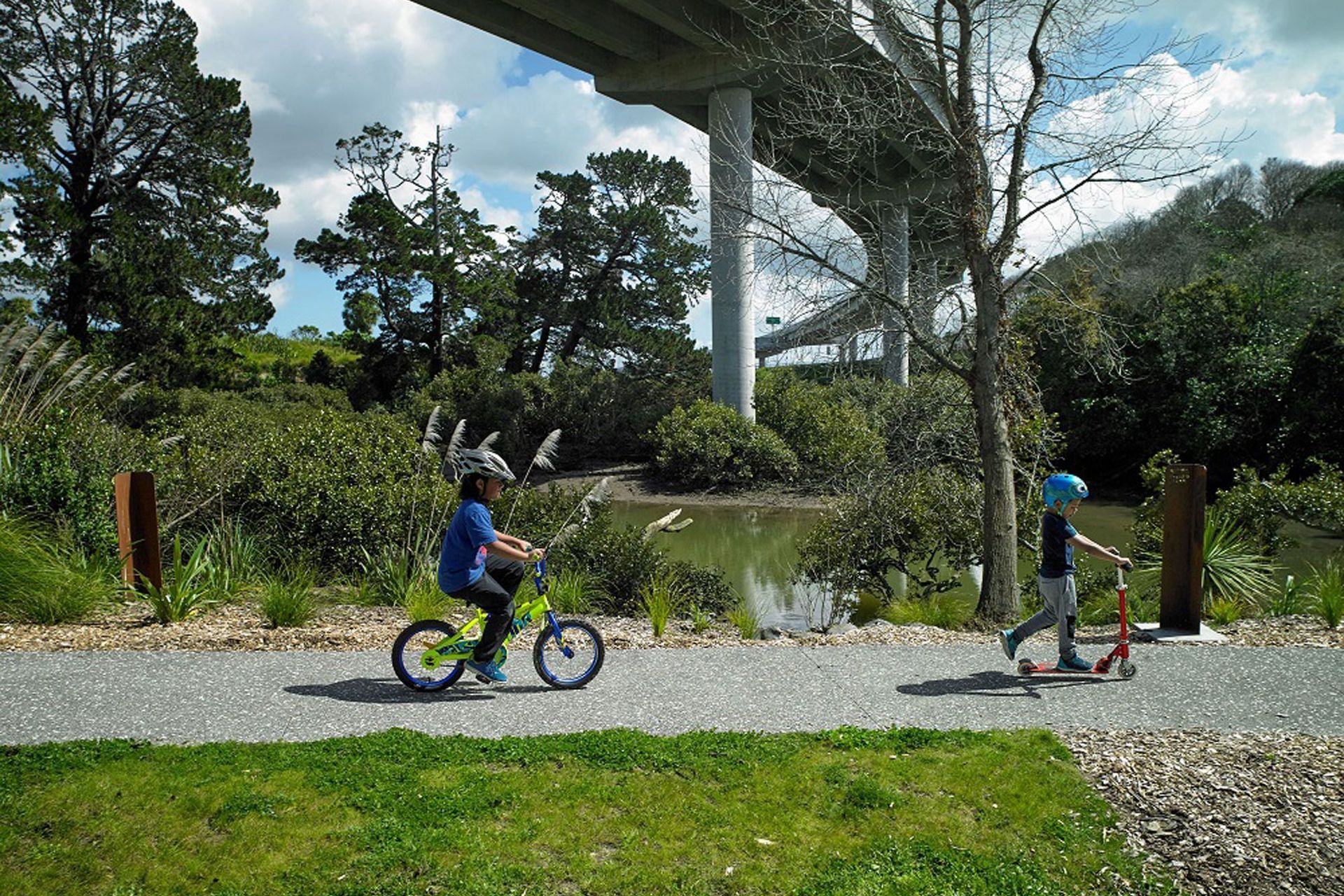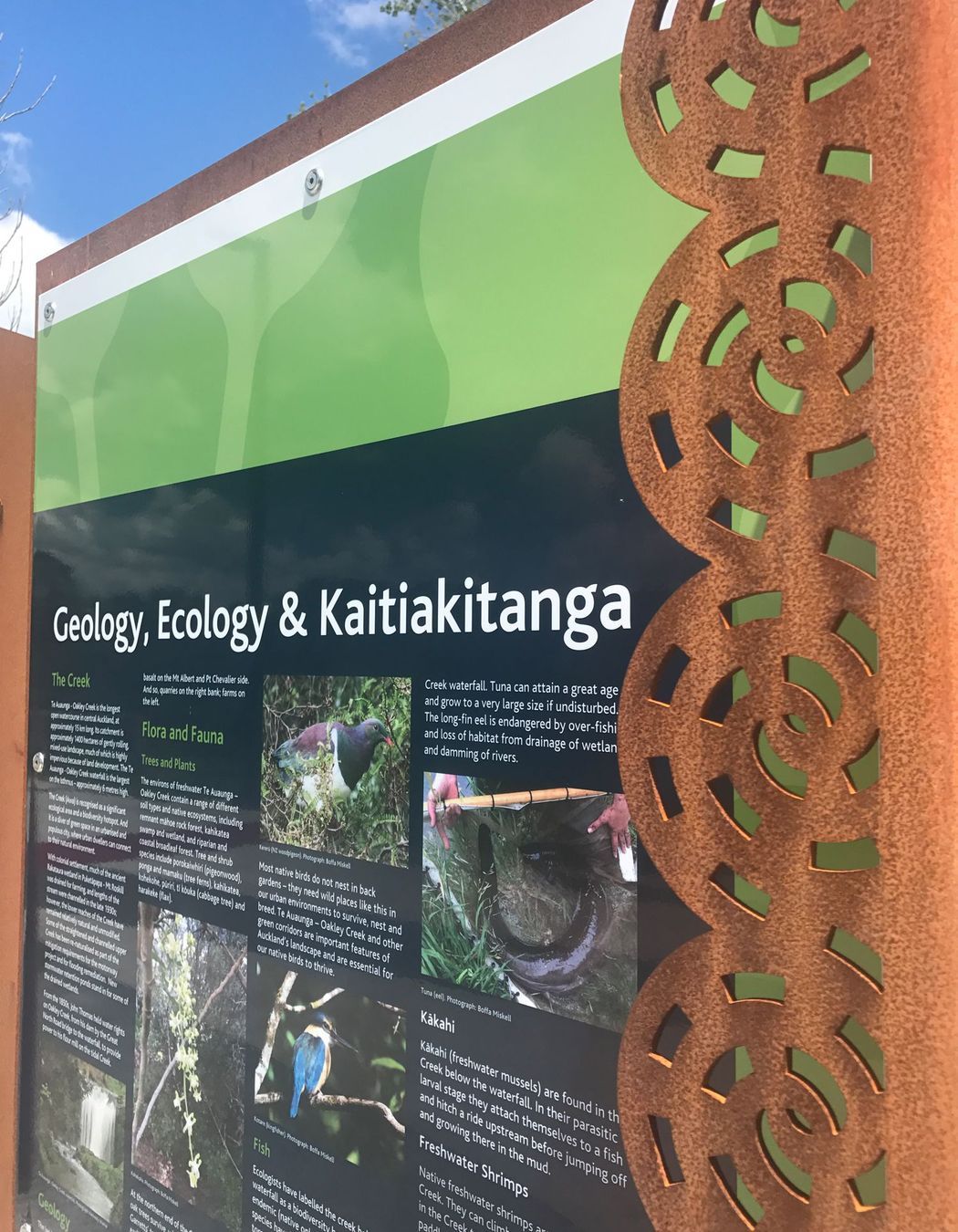At the time of construction, Waterview Connection was the largest budget construction project ever undertaken in New Zealand. The site is in urban Auckland and the project profoundly impacted local residents and communities. As a result of the severance caused by the above-ground infrastructure works, the Board of Enquiry required revitalisation of the open space areas within the motorway alignment; and delivery of new public amenities.
In conjunction with the public space impacts, the infrastructure itself had to deliver a world-class design outcome due to the prominence of the project in the local environment. The public had an enormous effect on the design outcomes through the extensive consultation and design workshops that were held in order to give the community a voice in the profound changes, long-term upheaval, and eventual amenities occurring in their neighbourhoods. Through this engagement, the local community developed a sense of ownership -- not of the highway, but of the mitigation works in the public open spaces.
This section of SH20 route was envisaged as the ‘Volcanic Highway’ as it passed through the Pukewiwi (Mt Roskill) and Owairaka (Mt Albert) volcanic fields. The Specimen Design recognised this design direction and developed responses appropriate to that theme. These were largely unseen by the wider community and once they were made public, there were some strong reactions, namely to noise wall designs, ventilation building concepts and the lack of suitable mitigation to the loss of public open space.
Boffa Miskell aided our client, The Well-Connected Alliance, led by NZ Transport Agency, in quickly addressing the concerns of the community.
NZTA has the mandate to deliver transport infrastructure with the best use of money. The dominant landscape component of this project was a departure from the usual NZTA workstreams, and its value (in terms of capital input and social benefit) was underestimated initially. However, once the project was underway, the level of support for the landscape works was enhanced as the community feedback was received. The real value of this project, other than any transport benefits, lie in the landscape and ecological outcomes that have hugely benefited the local communities that would otherwise could have been severely impacted by the project.
This was achieved through developing modified designs that we were able to have signed off as appropriate by the Auckland City Council (as the Requiring Authority). Two of the strong drivers that influenced many of the design outcomes related back to the volcanic environment. Strong angular forms taken from the columnar basalt and the iron-stained basalt rock colours influenced design elements such as the noise walls, the ventilation stack on the Southern Vent Building and the basalt was used wherever possible for landscape elements.
The form of the volcanic cones was a strong influence in the design of Te Whitinga Bridge, crossing SH20, connecting otherwise severed communities. Te Auaunga (Oakley Creek) was required to be relocated as it sat directly over the motorway alignment. The stream had been channelised and rock-lined as a drain in the 1930s and this was an opportunity to deliver a restored urban waterway (Auckland’s longest) in a new alignment but naturalised. Columnar basalt flows were uncovered and left as features, runs, riffles and pools were introduced and the stream given a wide channel to meander and provide better habitats for eels, birds and invertebrates.
In undertaking this work, a rare local species of a previously unknown native geranium was discovered. It was under significant threat from the construction work and quite possibly would not have survived the works. The plants were recovered and protected off site, additional plants grown on and special planting areas set aside within the stream planting works. This geranium is now well established in this restored environment.
Waterview Connection demonstrates how an infrastructure project can leverage enhanced landscape and ecological outcomes. The infrastructure (the motorway), had the potential to sever communities. The landscape concept sought to connect these communities through shared outcomes that greatly enhanced the public open spaces whilst providing improved ecological outcomes for Auckland’s longest urban stream. New recreation facilities and pedestrian/cycle access routes have been established and communities have been re-connected.
Most telling, the landscape works were significantly less than 5% of the total budget yet these spaces have had a profound impact on the perception of the project from the public. Residents who once opposed the scheme are now strong advocates for the community landscape outcomes.
Project team
Worked with
- Beca Infrastructure
- Fletcher Construction
- McConnell Dowell Constructors
- Obayashi Corporation
- Parsons Brinkerhoff
- Tonkin & Taylor
- Waka Kotahi NZ Transport Agency
- Warren and Mahoney (sub-consultants to Boffa Miskell for Architectural work)

